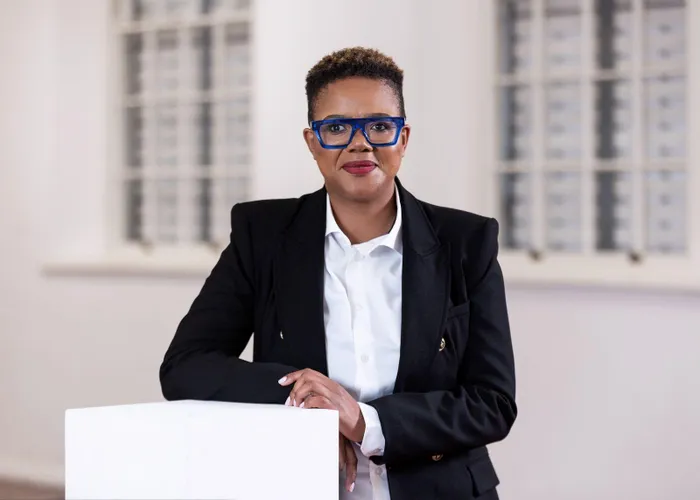City welcomes hundreds attending first SACO conference on future of creative economies

Unathi Lutshaba, Executive Director of SACO
Image: Supplied
MORE than 250 academics, policymakers, creatives, and industry leaders from around the world will gather for the first time in the city when the South African Cultural Observatory (SACO) International Conference gets underway at the Cape Town DHL Stadium on Tuesday.
The two-day gathering will put the future of the creative economy centre stage as delegates from across the globe gather to share ideas, policies, and innovations shaping the sector.
Themed “Creative & Sports Economy Futures – Perspectives, Policies, and Practices for Tomorrow”, the event will open with a keynote address on the future of creative economies, followed by high-level panels on “The Changing Economics of Creativity” and “Between Human and Machine: Navigating Creative Tech Futures”.
Day Two will feature sessions on the gig economy, creative labour and wellbeing, economic music migrancy, and digital piracy, alongside workshops on artist health advocacy, creative entrepreneurship, and education for future creative work.
“As we stand at the intersection of technological disruption, shifting global power dynamics, and unprecedented creative innovation, this conference couldn't be timelier,” said SACO executive director, Unathi Lutshaba.
Lutshaba on Monday confirmed preparations were going well and many of the speakers were already in town.
“I am looking forward to everything, all the discussions at the conference, the topics. It is the first time the SACO is happening with the inclusion of sport, which is crucial.
“The theme says creative economy, as South Africans we have never lacked creativity, our language is survival. We are in discussion with people in the industry, policy makers about how the next decade can be if we move more decisively,” Lutshaba said.
SACO hopes creatives would use the conference as an opportunity to network, connect with fellow artists and organisations, and discover projects with potential synergies and ask critical questions.
Keynote speaker, Keith Nurse, President of the College of Science, Technology and Applied Arts Trinidad and Tobago said the creative economy is a “rapidly expanding element of the global economy”.
“We need to start thinking more creatively about it beyond just cultural modalities. Creative industries are not just standalone industries, (example) the tourism economy is driven by creative economies, (such as) heritage tourism.
“One of the huge impacts of the creative economy has been the way it has become embedded in social media, driven largely by creative content. Imagine an internet without creative content.”
He said countries like South Africa should invest more in developing strategies to better harness and leverage the value of intellectual property.
Cape Times